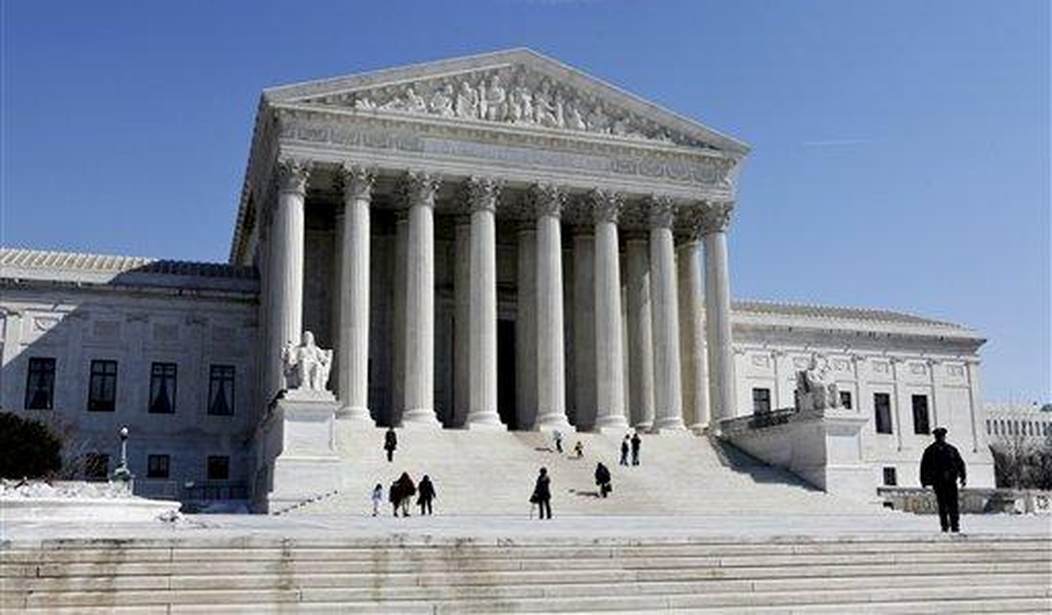According to the No Religious Test Clause of the U.S. Constitution, “no religious Test shall ever be required as a Qualification to any Office or public Trust under the United States.”
It does not take a constitutional scholar to understand this straight-forward clause, which obviously applies to Supreme Court Justices. However, as President Trump readies to announce his nomination for the vacant seat on the nation’s highest court, it seems as if religion will be a front and center issue.
Already, days before Trump is scheduled to make his official pick to replace the recently departed Ruth Bader Ginsburg, the Democratic Party, in cahoots with the mainstream liberal media, is preparing to usereligion as a litmus test against whomever Trump eventually nominates.
This should not come as a surprise.
All signs are pointing to Trump nominating either Amy Coney Barrett or Barbara Lagoa. Although it should not matter at all, both are practicing Catholics. And both have come under major scrutiny for the simple fact that they choose to practice the Catholic faith.
This reprehensible religious discrimination is nothing new to Amy Coney Barrett, who most believe is the front-runner for the nomination.
In 2017, while appearing before the Senate Judiciary Committee as she awaited confirmation to the U.S. Circuit Court of Appeals, Barrett faced a barrage of religion-related questions/accusations from Sen. Diane Feinstein (D-CA).
Feinstein began with a rhetorical question meant to call into question Barrett’s fidelity to the law. “Why is it that so many of us on this side have this very uncomfortable feeling that dogma and law are two different things, and I think whatever a religion is, it has its own dogma. The law is totally different,” Feinstein said.
Recommended
Before allowing Barrett to answer, Feinstein said, “And I think in your case, professor, when you read your speeches, the conclusion one draws is that the dogma lives loudly within you. And that’s of concern.”
As if that was not enough, Feinstein went on to say, “You’re controversial because many of us that have lived our lives as women really recognize the value of finally being able to control our reproductive systems. And Roe entered into that, obviously.”
After being raked over the coals by Sen. Dick Durbin (D-IL) for simply being a Catholic, Barrett made it abundantly clear that her faith would not preempt her ability to make decisions based on the law.
As Barrett eloquently put it, “my personal Church affiliation or my religious belief would not bear in the discharge of my duties as a judge.”
At that point, the religious test that Barrett was facing (which is unconstitutional) should have ended. However, it did not. And, if Barrett is nominated this weekend, you can surely bet these false and malicious allegations will be resurrected.
In 1960, while running for president, then-candidate John F. Kennedy faced many insults and outlandish accusations because he was Catholic.
However, what was different then as opposed to today is that JFK was not being put on blast because he held religious beliefs. Rather, JFK was considered unfit for the Oval Office because he was a Catholic. Believe it or not, many thought JFK would be under the spell of Rome. Many thought the Pope would be the puppet-master, pulling the strings from the Vatican.
It was preposterous then and it is even more preposterous now. The First Amendment guarantees that Congress shall make no law respecting an establishment of religion, or prohibiting the free exercise thereof.
This obviously applies to those running for public office and those who are under consideration to sit on the Supreme Court.
Although the Left will try to portray anyone who Trump nominates to the Supreme Court in a few days as a monster, they should refrain from launching unwarranted, unconstitutional, and un-American attacks on their religious views.
After all, didn’t the Pilgrims flee religious tyranny to create a place where religious freedom was supposed to be paramount?
Chris Talgo (ctalgo@heartland.org ) is an editor at The Heartland Institute.

























Join the conversation as a VIP Member